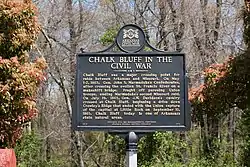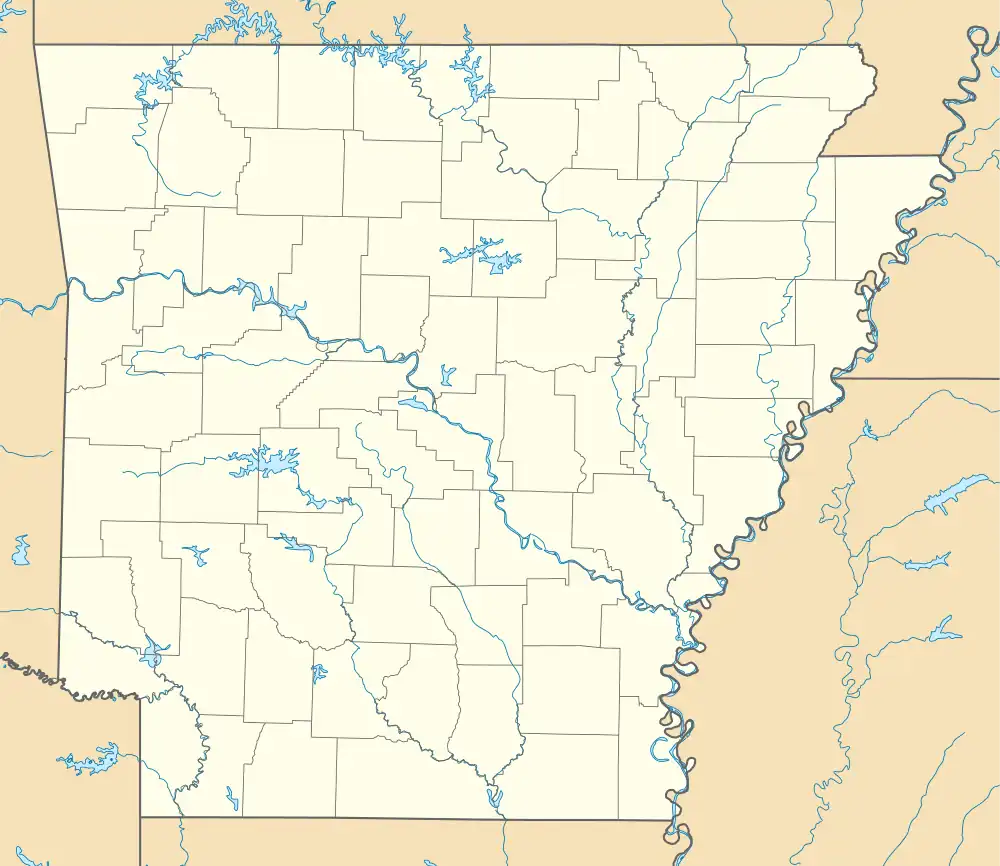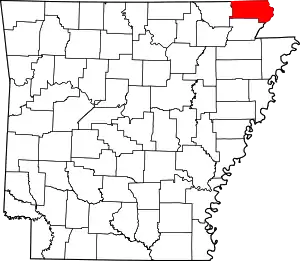Chalk Bluff, Arkansas
Chalk Bluff was an unincorporated community in Clay County, Arkansas, United States, approximately two miles (3 km) northwest of St. Francis. The town was formed in the 1820s at the point where the St. Francis River cuts through Crowley's Ridge from west to east. The name of the community was derived from the white clay bluff created by this crossing. The founder of the community was Abraham Seitz, who established and operated a ferry crossing and general store in the area from the 1830 until it was destroyed during the Civil War. The community occupied a strategic location and was often referred to in the reports of Union and Confederate forces vying for control of Northeast Arkansas during the war. Several skirmishes occurred near the ferry crossing, one of which was significant it enough to become known as the Battle of Chalk Bluff, which took place in early May 1863.[2] The town was abandoned following the Civil War and most residents moved to the new railroad town, St. Francis, Arkansas.[3] The location was listed on the National Register of Historic Places in 1974.[1]
Chalk Bluff | |
 | |
  | |
| Nearest city | St. Francis, Arkansas |
|---|---|
| Coordinates | 36°28′41″N 90°9′32″W |
| Area | 9.5 acres (3.8 ha) |
| Built | 1840 |
| NRHP reference No. | 74000470[1] |
| Added to NRHP | October 29, 1974 |
The site is now home to the Chalk Bluff Battlefield Park which commemorates the May 1863 battle[4] and to the Chalk Bluff Natural Area.[5]
References
- "National Register Information System". National Register of Historic Places. National Park Service. July 9, 2010.
- Wright, V.C., & Laud Payne, "The Battle of Chalk Bluff..." Piggott, Arkansas: 1953.
- Webb, Robert T.; History & Traditions of Clay County. Little Rock, Arkansas: Parke-Harper Co., 1933 (reprinted in the Piggott Times, April 29, 1982.)
- "Chalk Bluff Battlefield Park | Arkansas.com". www.arkansas.com. Retrieved 2019-03-25.
- "Chalk Bluff Natural Area". Arkansas Natural Heritage Commission. Retrieved 2015-10-05.
External links
- "Chalk Bluff". Geographic Names Information System. United States Geological Survey. Retrieved 2014-01-11.
